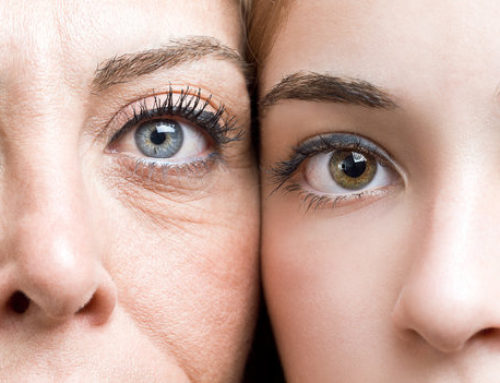
From Care.com
Fess up, fellow Americans: whether you’re an avid believer in “Bringing Up Bébé,” or you’re a staunch helicopter parent, you’ve got to be just a little bit curious about what parenting in France is really like. Are all the kids there perfectly well-behaved, wine-swilling, escargot-eating sophisticated artistes by the time they’re 6? Do their parents hold the key to raising children without anxiety?
We asked an American mother living in Paris to share the details of a typical day in her life and give us a few clues about how different parenting really is in France…and, in some cases, how much it’s absolutely the same.
Morning Rituals
In a suburb of Paris, transplanted American musician Dana Boulé wakes up with her 5-year-old son and prepares breakfast for them both. “My [French] in-laws are incredulous that we eat eggs every single day. I can’t function without protein, and my son does the same thing, too.” Around 9:00 a.m., Boulé walks her son to his free, state-fundedpreschool just five minutes away, where he’ll spend the day until 4:00 p.m…
…That is, unless the school’s on strike. “It’s a really common thing that blows my mind,” remarks Boulé. “This year it’s happened at least once a month. This last month it’s happened at least once each week.”
Like many other European countries, the child care system in France is oriented toward supporting families with two working parents. “The cost of group childcare here is so low that many mothers put their 0-2 year-olds in daycare — ‘la crèche’ in French — or they hire an ‘assistante maternelle,'” Boulé says. “‘Assistantes maternelles’ take care of up to four children in their homes. This is what I did with my son when he was 2, and it cost us roughly $600 a month for 36 hours a week of child care.”
For mothers who choose to stay home with their young kids, there aren’t many options for organized entertainment. “Most child-oriented establishments are only open after school, weekends or on Wednesdays, when the kids have a half day of school.”
One new exception in Paris is the advent of multi-purpose play spaces like “Happy Families,” where parents can pay someone to look after their kids while enjoying the onsite café, salon, doctors’ offices and more. “It’s definitely a new concept here and a welcome one! It’s consistent with the French way of parenting; that the needs of the mother are rated as just as important as those of the child. Time to take care of oneself is essential.”
Once Boulé drops her son off at school, she’s off to do errands. “I do my grocery shopping daily,” she says. “I’m not going to Costco and buying 85 lbs of meat for a month. You go and see what’s fresh for that day.” Once the errands are done, she either heads home to work on her music in her studio or goes to different schools to teach songwriting to kids.
Afternoon Rituals
Lunch is served around 1:00 p.m. in Parisian schools. And it’s a BIG deal. “The kids are all sitting at a table with actual forks and knives, a napkin, and they are served, family-style, a three-course meal,” Boulé remarks. “They sit there, and they’re expected to use their cutlery correctly. The food in the schools is extraordinary. It’s not pizza-party lunches.” Keep in mind that we’re not talking about private schools, here; this is the standard lunchtime scenario for most, if not all, French public schools.
On Wednesdays, the kids get out of school at noon and go to extracurricular classes. It’s worth noting that the regular school day doesn’t include much music, art or gym. “All of that stuff is seen as extra outside of class.” Since music and art are a constant part of their lives at home, Boulé usually opts to take her son to rock-climbing class during these hours.
“The biggest problem I have with the French school system is it’s very much about learning things by rote (or repetition),” she admits, adding that her son’s class has 27 students to one teacher. She also sees a difference in French parents’ expectations of their children: “It seems that your child is expected to have a lot of adult ways very early. They don’t give them the license to be loud, be a kid, be confident.”
At 4:00 p.m., Boulé picks up her son from school. “When it’s warm out, they serve fresh ice cream by the town hall that’s literally the best ice cream you’ve ever had. That’s a common after-school thing.” Then, they’ll head to a park, where “most of the parents just sit on the side and talk to each other.” She adds, “A lot of them still smoke [in the playground], which I was so flabbergasted by.”
The playground doesn’t appear to be where moms make new friends. The concept of parenting groups has caught on only in certain neighborhoods in Paris. Boulé was in an Anglophone parents’ group for a while but dropped out because most parents lived too far away. “French people make their friends early on, and those are the people that you’re just friends with,” Boulé points out. “I found it pretty hard to make friends here, and that’s not through any lack of trying on my part.”
Evening Rituals
“We go to the bakery at 5:00 p.m. because the fresh bread comes out then,” Boulé explains. “[Her son] usually helps me cook dinner. That’s a little precious time here where he gets to cut stuff and put it in the pan, and we talk about what we’re cooking.”
Dining out with a young child in Paris is a very different experience from when you’re in the States. Kid-friendly establishments are a rarity. “I definitely didn’t feel welcome in many restaurants when he was a baby,” Boulé admits. “There was one instance when we entered an empty restaurant during the day for lunch and were told begrudgingly the only table they would give us was a small round café table next to the bathroom. They refused to give us a booth and rolled their eyes when I insisted. We left. I quickly learned that we could go to some big chain restaurants but to never count on a high chair being available.”
Now that her son is a little older, the country is their gourmet oyster. “My son was trained from a very early age to have table manners. Mealtime in France is treated with respect, and tantrums at the table are not tolerated, especially in public. He’s 5 now, and we’re able to eat most anywhere without an issue because he knows no one will put up with a meltdown. Each time we go back to the U.S. and eat out, I’m amazed at how much louder the restaurants are.”
After dinner, the whole family plays until bedtime. Around 8 o’clock, Boulé’s son goes to bed and she heads back into her music studio.
What do you think: would you want to raise a baby in France? Do you feel child care should be free or subsidized and a parent’s needs should be equal to a child’s? As they say in France: “chacun à son goût.”





